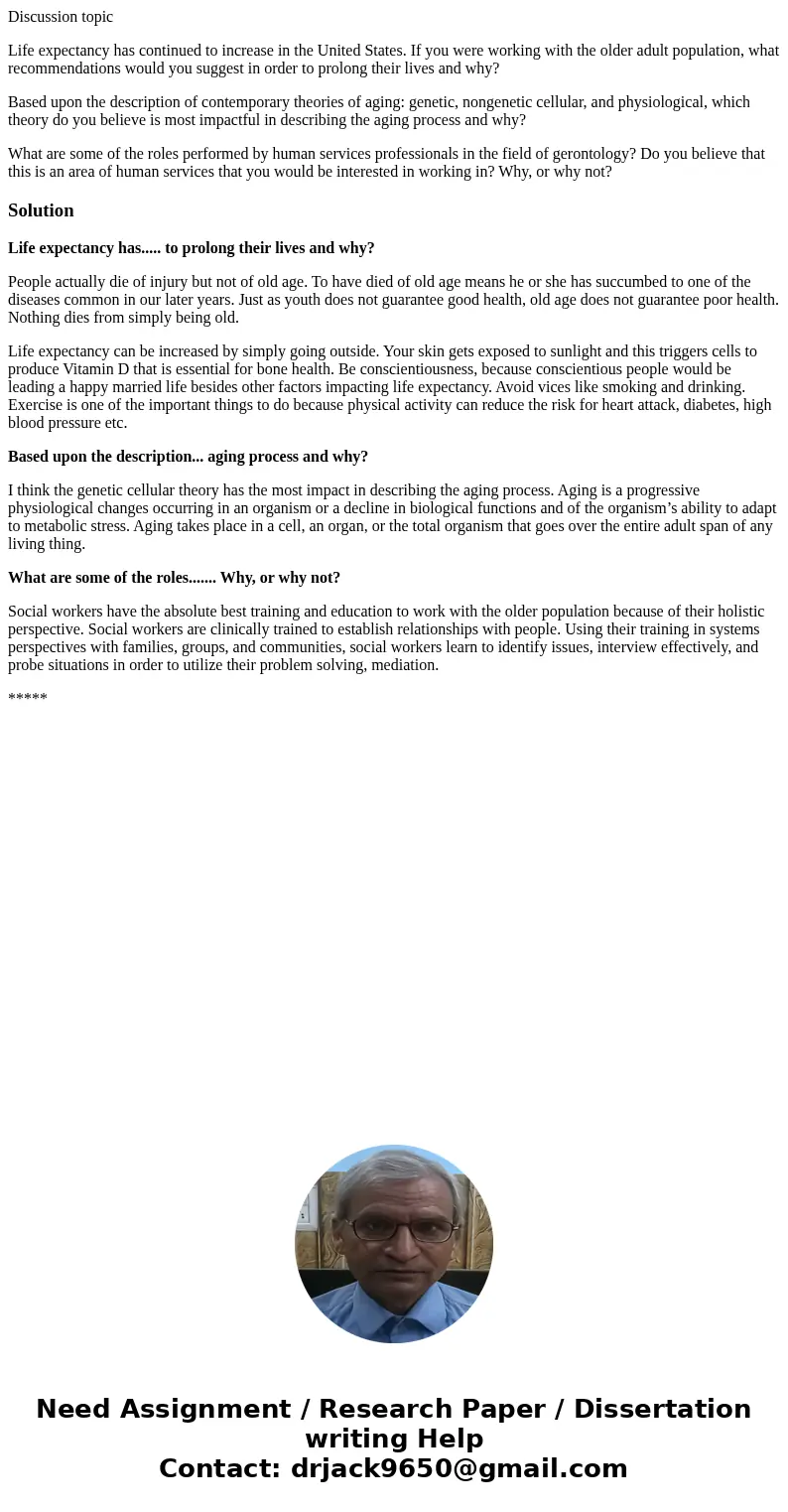Discussion topic Life expectancy has continued to increase i
Discussion topic
Life expectancy has continued to increase in the United States. If you were working with the older adult population, what recommendations would you suggest in order to prolong their lives and why?
Based upon the description of contemporary theories of aging: genetic, nongenetic cellular, and physiological, which theory do you believe is most impactful in describing the aging process and why?
What are some of the roles performed by human services professionals in the field of gerontology? Do you believe that this is an area of human services that you would be interested in working in? Why, or why not?
Solution
Life expectancy has..... to prolong their lives and why?
People actually die of injury but not of old age. To have died of old age means he or she has succumbed to one of the diseases common in our later years. Just as youth does not guarantee good health, old age does not guarantee poor health. Nothing dies from simply being old.
Life expectancy can be increased by simply going outside. Your skin gets exposed to sunlight and this triggers cells to produce Vitamin D that is essential for bone health. Be conscientiousness, because conscientious people would be leading a happy married life besides other factors impacting life expectancy. Avoid vices like smoking and drinking. Exercise is one of the important things to do because physical activity can reduce the risk for heart attack, diabetes, high blood pressure etc.
Based upon the description... aging process and why?
I think the genetic cellular theory has the most impact in describing the aging process. Aging is a progressive physiological changes occurring in an organism or a decline in biological functions and of the organism’s ability to adapt to metabolic stress. Aging takes place in a cell, an organ, or the total organism that goes over the entire adult span of any living thing.
What are some of the roles....... Why, or why not?
Social workers have the absolute best training and education to work with the older population because of their holistic perspective. Social workers are clinically trained to establish relationships with people. Using their training in systems perspectives with families, groups, and communities, social workers learn to identify issues, interview effectively, and probe situations in order to utilize their problem solving, mediation.
*****

 Homework Sourse
Homework Sourse